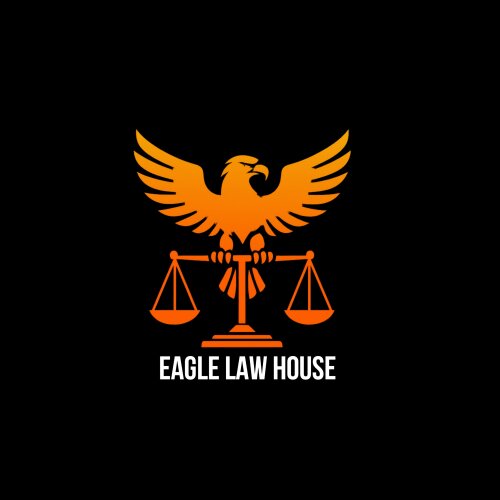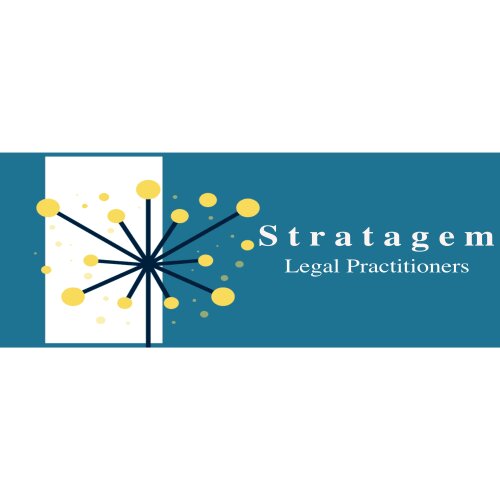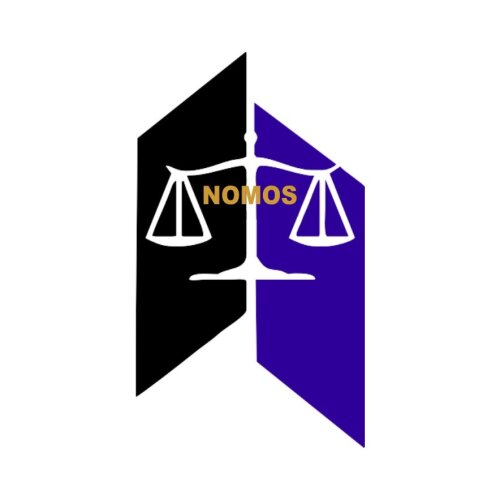Best Immigration Lawyers in Nigeria
Share your needs with us, get contacted by law firms.
Free. Takes 2 min.
Or refine your search by selecting a city:
List of the best lawyers in Nigeria
Legal guides written by Adeola Oyinlade & Co:
- Procedure and Requirements for Work Permit and Visas in Nigeria
- The Step-By-Step Procedure of How to Apply for Microfinance Bank License Online in Nigeria
- How to Ensure the Smooth Recognition and Enforcement of Foreign Judgments in Nigeria
Nigeria Immigration Legal Questions answered by Lawyers
Browse our 12 legal questions about Immigration in Nigeria and read the lawyer answers, or ask your own questions for free.
- Urgent assistance
- Hello, please I am in need of advice/assistance about my Nigerian passport. I was deported from the uk for overstaying in 2016 and I was deported back to Nigeria via chartered flight and my passport was given to Nigerian immigration, I was told it would be sent to me but... Read more →
-
Lawyer answer by CO-dunni Law Solicitors
You should write to immigrations to help with your ban. You need further assistance contact our Law Firm directly
Read full answer - Request for Legal Assistance with Student Visa Denial
- Dear Sir or madam Good day, I hope this message finds you well. I am writing to request your legal assistance regarding the recent denial of my student visa application for Germany. I was enrolled in the Bachelor of Information Engineering program for the Summer Semester 2024 at Hamburg University... Read more →
-
Lawyer answer by mohammad mehdi ghanbari
Dear SirThank you for reaching out and for providing a detailed account of your situation. I am sorry to hear about the denial of your student visa application and understand the frustration this must cause, especially after such a long...
Read full answer - Information about Permanent residence visa
- Can I get a step by step guidelines on how to apply for Australia permanent residence visa through provincial nominee or skilled worker?
-
Lawyer answer by mohammad mehdi ghanbari
Hello, good morningObtaining permanent residency in Australia as a skilled worker involves a points-based system and can be done either independently or with a nomination from a state or territory government. The process requires careful preparation and meeting specific eligibility...
Read full answer
Nigeria Immigration Legal Articles
Browse our 1 legal article about Immigration in Nigeria written by expert lawyers.
- Procedure and Requirements for Work Permit and Visas in Nigeria
- Foreign nationals seeking to enter, work, or reside in Nigeria must meet the country's Immigration Rules. The Nigeria Immigration Regulations on work permits are outlined in the Immigration Act 2015 and the Immigration Regulations 2017. The agency responsible for issuing work permits to aliens is the Nigeria Immigration Service.Definition of... Read more →
About Immigration Law in Nigeria
Immigration law in Nigeria governs the movement of people across its borders, both in terms of who is eligible to enter or remain in the country and under what conditions. It encompasses a range of legal directives designed to manage matters such as the issuance of visas, work permits, residency status, and citizenship. Key pieces of legislation include the Immigration Act, the Nigerian Immigration Service Act, and various regulations guiding these laws. The Nigerian Immigration Service (NIS) is the primary agency responsible for the implementation and enforcement of immigration laws in Nigeria.
Why You May Need a Lawyer
Engaging a lawyer can be crucial in navigating the complexities of immigration law for several reasons:
- Visa Applications: Legal expertise can help in accurately preparing and submitting visa applications to avoid denials or delays.
- Immigration Appeals: In cases of visa refusals or residency status challenges, a lawyer can represent your appeal effectively.
- Deportation Defense: If facing deportation, a lawyer can offer guidance and represent your interests in legal proceedings.
- Business Immigration: Companies seeking to hire foreign nationals may require legal assistance to ensure compliance with immigration laws.
- Citizenship Applications: Legal expertise can streamline the process of applying for Nigerian citizenship.
Local Laws Overview
The Nigerian immigration laws contain several crucial aspects that individuals and businesses should be aware of:
- Entry Requirement: Visitors must possess a valid passport and, unless from ECOWAS or Commonwealth countries, typically require a visa.
- Residency Permits: Different categories, such as residence permits for employment, require specific documentation and conditions.
- Work Permits: Foreign nationals need a work permit to be employed legally; failure to comply can result in penalties or deportation.
- Renewal and Extension: Permits and visas often require timely renewal or extension, aligning with specific legal guidance.
- Penalties: Violations like overstaying visas or working without authorization attract fines and may result in entry bans.
Frequently Asked Questions
What documents are needed to apply for a Nigerian visa?
Applicants typically need a valid passport, completed visa application forms, a recent photograph, flight itinerary, proof of accommodation, and sometimes a letter of invitation or proof of funds.
How long does it take to process a Nigerian visa?
Processing times can vary, but a standard tourist visa is usually processed within 5 to 7 business days. However, unforeseen delays can occur.
Is a work visa different from a business visa?
Yes, a work visa allows a foreign national to take up employment in Nigeria, whereas a business visa permits temporary visits for business discussions, but not employment.
What is the role of the Nigerian Immigration Service (NIS)?
The NIS is tasked with controlling who enters and exits Nigeria, issuing visas, passports, and permits, as well as enforcing immigration laws.
Can a foreigner become a Nigerian citizen?
Yes, a foreigner may be eligible to become a citizen through naturalization, depending on fulfilling specific residency and legal requirements.
What should I do if my Nigerian visa application is denied?
Upon denial, you can appeal the decision or reapply, addressing the reasons for the initial denial and providing additional documentation if necessary.
How early should I apply for visa renewal?
Applicants are advised to apply for visa renewal well in advance, typically at least 30 days before expiration, to avoid any legal issues.
Is it possible to work in Nigeria on a tourist visa?
No, tourist visas do not authorize employment. Working on a tourist visa is illegal and can lead to penalties, including deportation.
Do family members of expatriates need separate permits?
Yes, each family member must apply for and receive their respective residency permits or visas, even if accompanying a work-visa holder.
What penalties exist for overstaying a visa in Nigeria?
Penalties for overstaying a visa may include fines, detention, deportation, and potentially blacklisting from future entry into Nigeria.
Additional Resources
Below are some resources that can be useful for individuals seeking immigration advice:
- Nigerian Immigration Service (NIS): The official body responsible for immigration control in Nigeria.
- Ministry of Interior: Oversees issues related to immigration policy and legislation.
- ECOWAS Commission: Provides guidelines regarding regional travel within West Africa.
- Legal Aid Council of Nigeria: Offers assistance in obtaining legal representation.
Next Steps
If you need legal assistance with an immigration issue, consider the following steps:
- Consult a qualified immigration lawyer who is familiar with Nigerian laws and regulations.
- Gather all relevant documentation related to your immigration status, visa applications, or any legal proceedings.
- Prepare a list of questions or concerns you want to discuss with your lawyer.
- Approach organizations such as the Legal Aid Council if you need support finding affordable legal help.
Lawzana helps you find the best lawyers and law firms in Nigeria through a curated and pre-screened list of qualified legal professionals. Our platform offers rankings and detailed profiles of attorneys and law firms, allowing you to compare based on practice areas, including Immigration, experience, and client feedback.
Each profile includes a description of the firm's areas of practice, client reviews, team members and partners, year of establishment, spoken languages, office locations, contact information, social media presence, and any published articles or resources. Most firms on our platform speak English and are experienced in both local and international legal matters.
Get a quote from top-rated law firms in Nigeria — quickly, securely, and without unnecessary hassle.
Disclaimer:
The information provided on this page is for general informational purposes only and does not constitute legal advice. While we strive to ensure the accuracy and relevance of the content, legal information may change over time, and interpretations of the law can vary. You should always consult with a qualified legal professional for advice specific to your situation.
We disclaim all liability for actions taken or not taken based on the content of this page. If you believe any information is incorrect or outdated, please contact us, and we will review and update it where appropriate.
Browse immigration law firms by service in Nigeria
Nigeria Attorneys in related practice areas.
Browse immigration law firms by city in Nigeria
Refine your search by selecting a city.

















